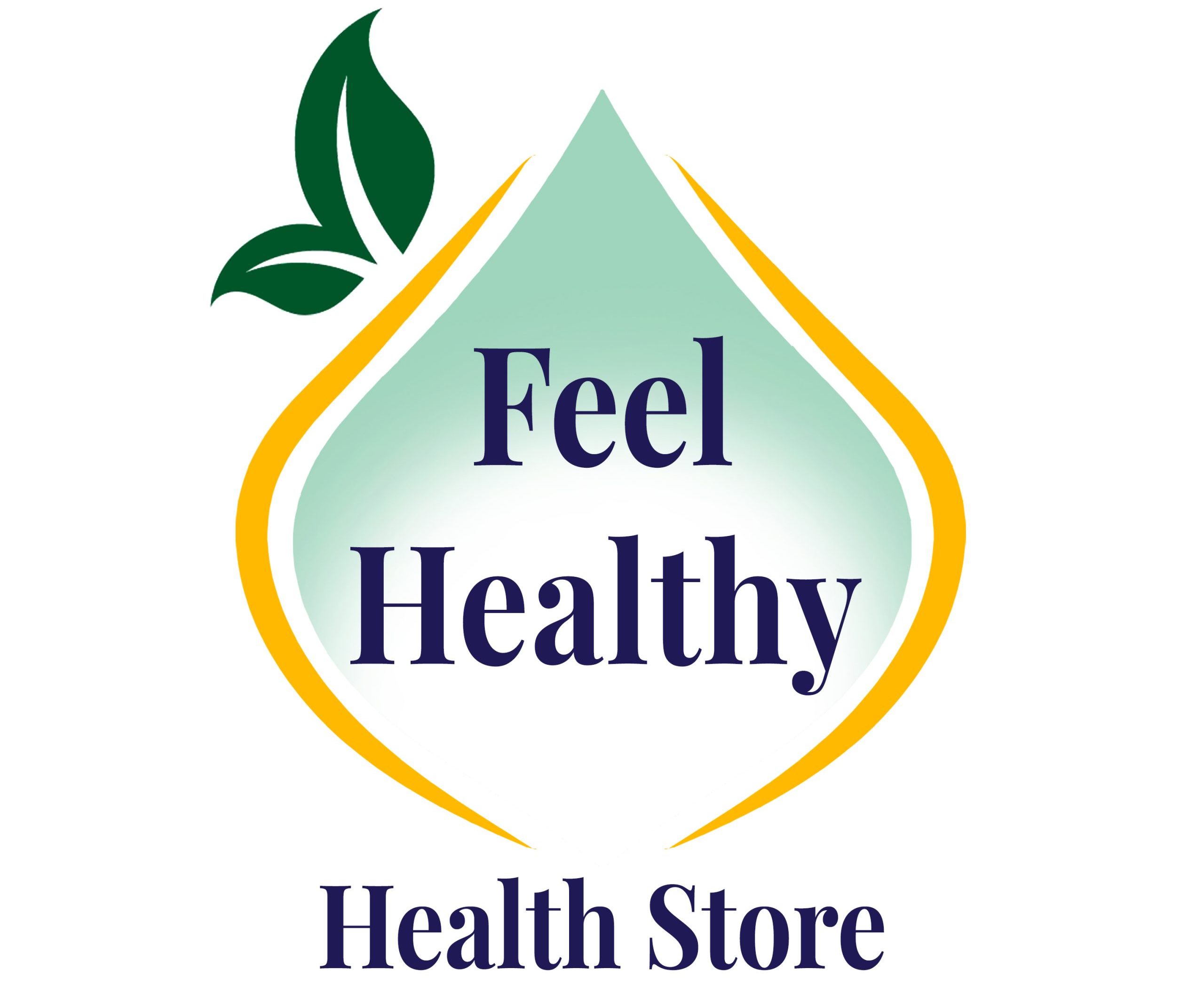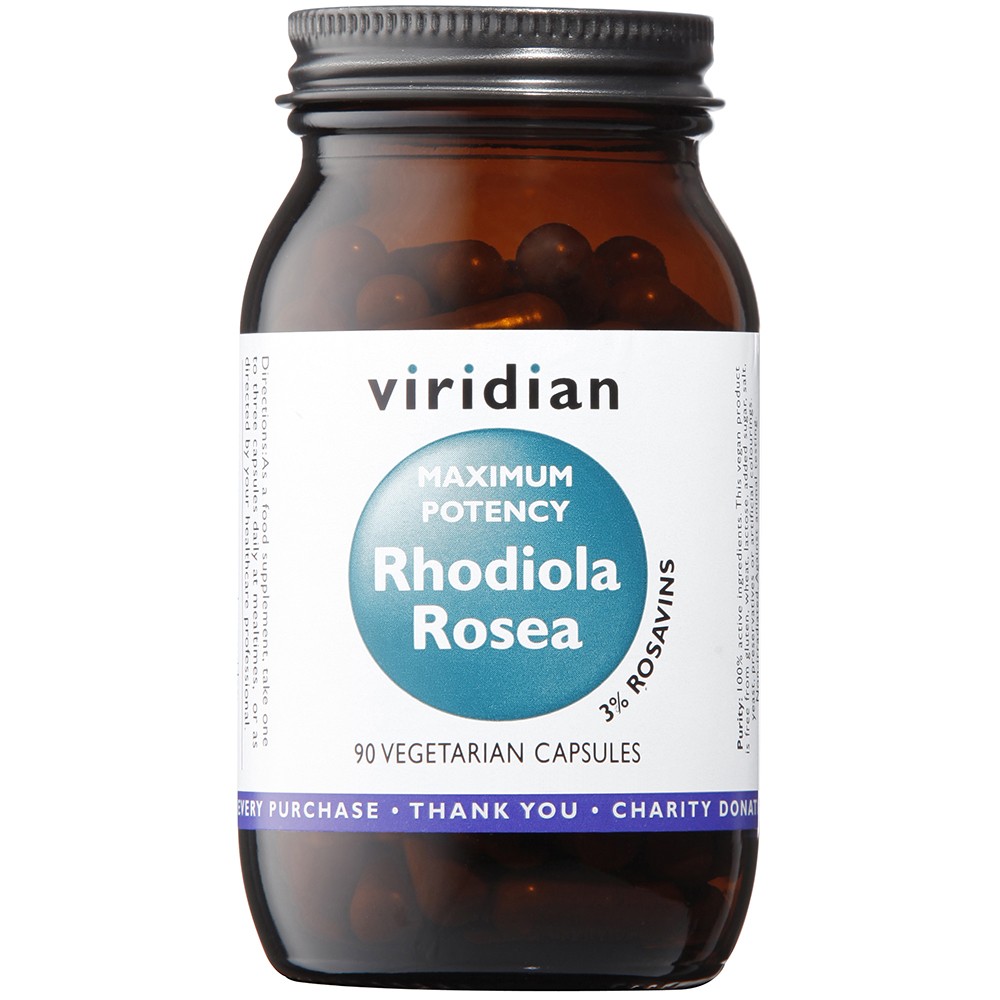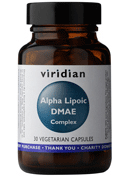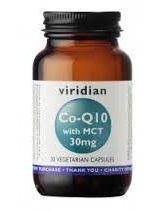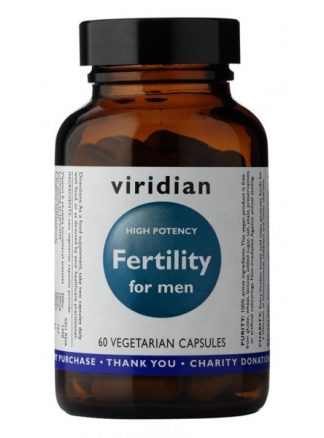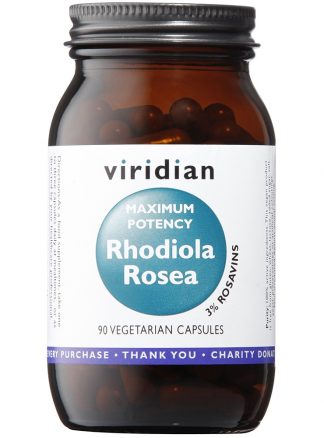Description
Viridian MAXI Rhodiola Rosea – 3% Rosavins 90 caps
Vegan, Kosher, Veg Caps
Combination of rhodiola rosea extract (standardised to 3% rosavins, 1% salidroside and 40% polyphenols) with whole rhodiola root powder in a base of alfalfa, spirulina and bilberry.
Directions: As a food supplement, take one to three capsules daily with food, or as directed by your healthcare professional.
one vegetarian capsule provides:
| Ingredient | Weight | %EC NRV |
| , 40% polyphenols)Standardised Rhodiola rosea root extract (3% rosavin, 1% Salidroside | 250mg | |
| Rhodiola rosea root powder | 130mg | |
| in a base of alfalfa, spirulina and bilberry |
ADAPTOGENIC
DEPRESSION
GWENERAL WELLBEING
MALE & FEMALE SEXUAL HEALTH
Rhodiola Rosea, also known as “arctic root” or “golden root”, is a member of the family Crassulaeae, plants indigenous to the polar arctic regions of eastern Siberia. As a powerful adaptogen rhodiola offers broad nonspecific effects supporting overall body function particularly via adrenal stress.
Dosage
One to three capsules daily at mealtimes or as directed by your healthcare professional.
Rhodiola rosea extracts used in most human clinical trials were standardised to contain 3 percent rosavins and 1 percent salidroside.
Potential applications
Stress, adrenal support, fatigue, sports performance, depression, cardiovascular maintenance, colds and infections, cellular health, learning and memory, blood sugar control, amenorrhea, male/female sexual dysfunction, adjunct treatment with chemotherapy, liver protection, antioxidant, protection against gum disease, improving auditory function.
Known contraindications
Although rare, certain individuals who experience nervous excitability, feverish states, and hypertension, should not use rhodiola unless supervised by a qualified practitioner. Persons who experience coronary spasm and fluctuations in arterial pressure should also use under supervision.
Not recommended for use during pregnancy and lactation.
Interactions
Rhodiola may interact with ADRENERGIC BLOCKING AGENTS and ANTI-ARRHYTHMIC AGENTS.
Studies report that rhodiola may act in the body in a similar way, which may alter the effects of these medications and possibly the dose needed for treatment. Use with caution.
ADRENERGIC BLOCKING AGENTS
These drugs include atenolol, esmolol, betaxolol, penbutolol, carteolol, bisoprolol, pindolol, metoprolol, timolol, sotalol, acebutolol, nadolol, propranolol, labetalol, carvedilol, methyldopa, clonidine, guanfacine, guanabenz, brimonidine tartrate, dipiprazole, levobunolol, levobetaxolol, metipranolol.
ANTI-ARRHYTHMIC AGENTS
These drugs include amiodarone, bretylium tosylate, adenosine, dofetilide, propafenone, lidocaine, tocainide, flecainide, ibutilide fumarate, moricizine, quinidine, disopyramide, procainamide, mexiletine, verapamil, digoxin, propranolol, sotalol, esmolol, acebutolol.
Beta adrenergic blocking drugs: A class of drugs, also called beta blockers, that block beta-adrenergic substances such as adrenaline (epinephrine), a key agent in the “sympathetic” portion of the autonomic (involuntary) nervous system. By blocking the action of the sympathetic nervous system on the heart, these agents relieve stress on the heart. They slow the heart beat, lessen the force with which the heart muscle contracts and reduce blood vessel contraction in the heart, brain, and throughout the body.
Antiarrhythmic drugs are medicines that correct irregular heartbeats and slow down hearts that beat too fast.
Useful links
Multi-vitamins, B complex, vitamin B5, EFAs, echinacea, licorice, hawthorn, Co Q10, ginkgo, l-arginine/lornithine, antioxidant, grape seed/pycnogenol
